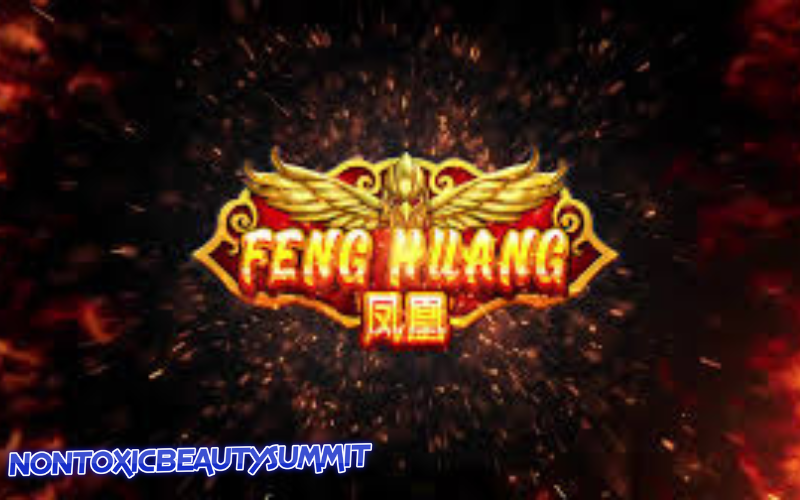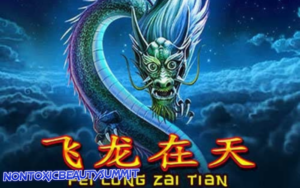UNCOVERING THE FIERY LEGEND OF THE FENG HUANG SOARING INTO CHINA’S MYTHICAL AVIAN
Have you ever wondered about the captivating tales surrounding the Feng Huang, the mythical Chinese Phoenix? In this blog post, we are embarking on a fascinating journey to delve deep into the rich tapestry of Chinese legends and symbolism that enshroud the Feng Huang.
The aim of this post is to unravel the enigmatic allure of Feng Huang in Chinese mythology, shedding light on its significance and the profound meanings it holds within the cultural landscape. Join us as we explore the mystical realms and timeless tales that have made Feng Huang a legendary symbol in Chinese lore.

THE ORIGIN OF FENG HUANG
The mythical creature known as Feng Huang has deep roots in Chinese mythology, with a rich history that dates back centuries. Let’s delve into the origins of Feng Huang and explore its symbolism and significance in Chinese culture.
FENG HUANG IN ANCIENT TEXTS
In ancient Chinese texts such as the ‘Classic of Mountains and Seas’ and ‘Shan Hai Jing,’ Feng Huang is described as a majestic bird with vibrant feathers symbolizing beauty and grace. It is often portrayed as a symbol of harmony, representing the balance between yin and yang. Feng Huang is believed to bring good fortune, and its appearance is seen as an auspicious sign. In these texts, Feng Huang is depicted as a creature of great virtue, embodying qualities of benevolence, kindness, and loyalty. Its role as a guardian of sacred lands and its ability to bring prosperity to those who encounter it have solidified Feng Huang’s place in Chinese folklore.
SYMBOLISM AND SIGNIFICANCE
Feng Huang holds significant symbolic meanings in Chinese culture, representing virtues such as honesty, integrity, and peace. It is often associated with the element of fire and is seen as a symbol of transformation and renewal. In Chinese art and architecture, Feng Huang is a prominent motif, adorning temples, palaces, and traditional artifacts. Its presence signifies prosperity, longevity, and blessings. The graceful form of Feng Huang has inspired artists and craftsmen for centuries, leading to intricate depictions in paintings, sculptures, and textiles. The enduring symbolism of Feng Huang continues to resonate in modern Chinese society, highlighting the values of grace, virtue, and resilience.
Let’s now explore the historical origins of Feng Huang in Chinese mythology and compare its representation with the Western concept of the phoenix.
LEGENDS AND STORIES OF FENG HUANG
Delve into the captivating world of Chinese mythology and uncover the mystical tales surrounding Feng Huang. These legends offer a window into the rich tapestry of stories that have woven themselves into the cultural fabric of China for centuries, painting a vivid picture of the majestic Feng Huang and its significance in Chinese folklore.
FENG HUANG AND DRAGON RELATIONSHIP
In Chinese mythology, Feng Huang and the dragon share a profound and symbiotic relationship, embodying the harmonious balance of yin and yang. The dragon symbolizes power, strength, and abundance, while Feng Huang represents grace, beauty, and prosperity. Together, they create a perfect union of complementary forces, reflecting the intricate duality of the natural world. This intertwined relationship underscores the essential concept of balance and harmony in Chinese mythology, where opposing forces unite to create a harmonious whole.
FENG HUANG IN FENG SHUI
The presence of Feng Huang in Feng Shui practices signifies its role in bringing harmony and balance to spaces. Often depicted in traditional Chinese architecture, Feng Huang embodies the principles of balance, prosperity, and protection. In Feng Shui, the placement of Feng Huang within a space is believed to enhance positive energy flow, promote prosperity, and safeguard against negative influences. By incorporating Feng Huang into architectural designs, practitioners seek to create environments that are not only aesthetically pleasing but also spiritually enriching and harmonious.
FENG HUANG AND EMPERORS
One of the most intriguing aspects of Feng Huang’s mythology is its association with Chinese emperors. Symbolizing imperial power and authority, Feng Huang is often depicted on imperial robes, adorning the garments of emperors as a symbol of their divine mandate to rule. The majestic presence of Feng Huang serves as a potent emblem of sovereignty and leadership, underscoring its integral role in the political and cultural landscape of ancient China. Through its association with emperors, Feng Huang embodies the ideals of nobility, strength, and wisdom, casting a powerful and enduring legacy in Chinese history.
Explore the captivating tales of Feng Huang and uncover the intricate web of legends that have captured the imaginations of generations. From its mythical relationship with the dragon to its revered status in Feng Shui practices and its symbolic connection to Chinese emperors, Feng Huang stands as a timeless symbol of beauty, harmony, and power in the vibrant tapestry of Chinese mythology. Join us on this enchanting journey through the labyrinth of myths and legends surrounding the legendary Feng Huang.
CULTURAL IMPACT AND MODERN INTERPRETATIONS
In the realm of contemporary Chinese culture, Feng Huang has woven its mystical presence through various mediums, leaving a trail of cultural impact and modern interpretations that continue to fascinate generations. Let’s embark on a journey to explore how this legendary creature transcends time and space, imprinting its symbolic significance on art, literature, festivals, and celebrations.
CONCLUSION
As we conclude our exploration into the captivating world of Feng Huang and its rich tapestry of Chinese mythology, we are reminded of the enduring allure that continues to captivate audiences across generations. The timeless symbolism embedded within the legends of Feng Huang resonates deeply with its cultural significance, instilling a sense of reverence and wonder that transcends time.















+ There are no comments
Add yours